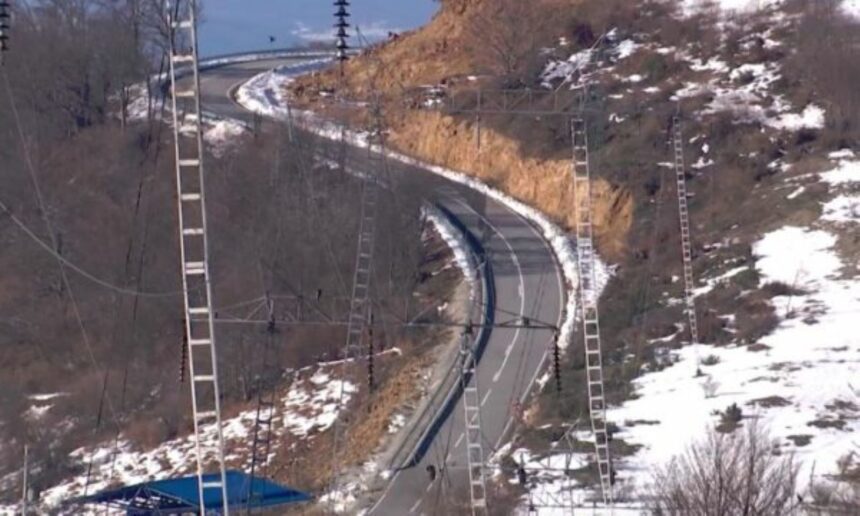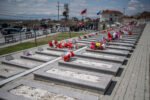A decade after the Brussels Agreement called for its opening, the border crossing at Izvor between Kosovo and Serbia remains closed due to Serbia’s refusal to implement the deal. Meanwhile, the road connecting this crossing to the village of Banjskë in Zveçan will remain in poor condition for at least another year. Last year, the European Union confirmed that it had taken responsibility for drafting a proposal to operationalize this and another crossing at Kapi in Sfircë, Kamenica.
This crossing, located in the hilly terrain between Zvečan in Kosovo and Novi Pazar in Serbia, has never officially served its intended purpose under the Brussels Technical Protocol on Integrated Border Management.
In May, it will be ten years since Kosovo and Serbia agreed to construct and open the Izvor border crossing in Zvečan and another at Kapi in Sfircë, Kamenica. However, neither has become operational due to Serbia’s refusal to implement the agreement.
Delays and Uncertainty
Discussions regarding the opening of these border crossings continued last year within the framework of the EU-facilitated dialogue at the chief negotiators’ level. At that time, the European Union confirmed that, as a facilitator of the process, it had assumed the task of implementing the decade-old agreement by preparing a proposal for their operationalization.
“The parties have already agreed to open these border crossings (Izvor and Kapi) in the past. The EU also supports their opening and will present a proposal on how to operationalize it,” an EU statement read.
However, there has been no further announcement on this proposal or on the opening of the crossings.
A Deteriorating Road and Security Concerns
For at least another year, local residents, Kosovo border police, and KFOR personnel will have to endure the deteriorating conditions of the 15-kilometer road linking Banjskë to the unfunctional border crossing.
Aside from a two-kilometer stretch of completely unpaved road made of rocks and mud near the exit of Banjskë—where a paramilitary terrorist attack occurred in September 2023—shorter damaged segments can also be found along the asphalted part of the road leading to the Serbian border.
“The asphalting of the road connecting Banjskë to Izvor and the non-functional border crossing is only budgeted for 2026,” according to Kosovo’s central government budget plan.
Nearly €672,000 have been allocated for this project.
Border Control and Contraband Concerns
For years, this road was one of the main smuggling routes in northern Kosovo. It was also reportedly used in September 2023 by Milan Radoičić and his terrorist group during their attack in Banjskë. Now, Kosovo Police have stationed forces along the route, and KFOR patrols have increased in frequency.
The eventual opening of the border crossing, aside from its security implications, would cut travel distance between Banjskë and Novi Pazar in half.







